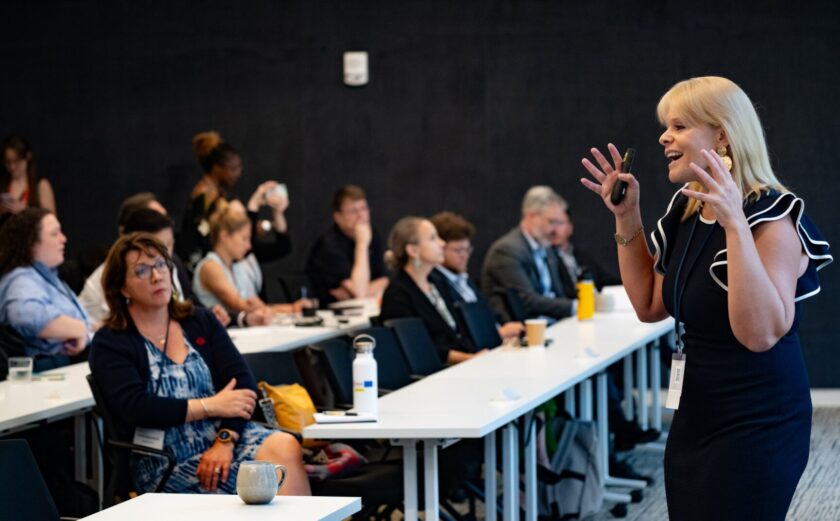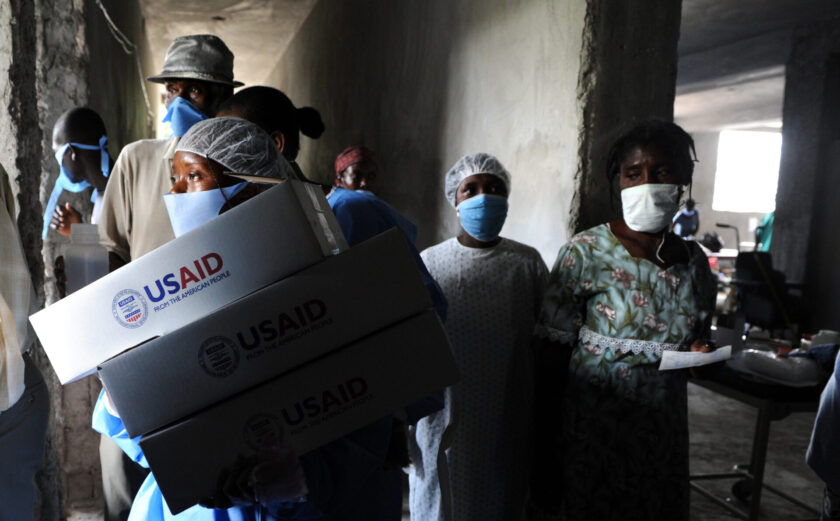
Supreme Court Ruling Is Good News for INGOs
In a case with potentially significant implications for international non-governmental organizations (INGOs) that work in proximity to terrorist groups, the U.S. Supreme Court rejected the lower court’s expansive reading of the Anti-Terrorism Act (ATA).
The ruling, handed down on May 18, 2023, established that aiding-and-abetting liability under the ATA requires the plaintiff to show that the defendant “consciously and conspicuously” participated in a specific act of international terrorism (Twitter v. Taamneh, U.S. Supreme Court No. 21-1496). In December 2022, InterAction filed an amicus brief in the case outlining the implications of the 9th Circuit Court’s broad interpretation of secondary liability under the ATA for INGOs.
The ATA permits anyone injured by an act of international terrorism to sue anyone “who aids and abets, by knowingly providing substantial assistance, or who conspires with the person, who committed such an act of international terrorism.” In addition, the statute requires that the act of terrorism must have been “committed, planned, or authorized” by a group designated as a foreign terrorist organization.
Twitter v. Taamneh
The lawsuit stemmed from a shooting massacre in Istanbul for which the Islamic State (ISIS) claimed responsibility. The plaintiffs, relatives of one of the attack victims, alleged that Twitter aided and abetted ISIS by allowing the terrorist group to use its platform; the plaintiffs did not allege that Twitter was used to plan or coordinate the attack. The 9th Circuit acknowledged that Twitter had, at most, an arms-length transactional relationship with ISIS, did not provide any specialized assistance, prohibited posts promoting terrorist activity, and regularly removed such content.
However, the 9th Circuit found that the allegations established that Twitter “knowingly” provided substantial assistance to “an act of international terrorism” because they allegedly were aware of ISIS’ use of their platform for years. The defense argued that in addition to Twitter’s services not being used in connection with the specific attack or by the individuals who committed or directed it, the defendant did not share any terroristic purpose and regularly enforced its rules to prevent terrorists from using its services.
The 9th Circuit’s interpretation extended liability to “entities that play no role in terrorist attacks, if the entities are alleged to be generally aware that terrorists or their affiliates, members, or supporters may be among their users. NGOs that provide lifesaving humanitarian aid to populations in fragile states are precisely the type of entity that will suffer from this interpretation of aiding-and-abetting liability under the ATA,” InterAction’s amicus brief stated.
Supreme Court Ruling
In its opinion, the Supreme Court noted that liability for “helping” in the commission of a crime or tort “has never been boundless.” Generally, our legal system does not impose liability “for mere omissions, inactions, or non-feasance.” Instead, “aids and abets” refers to a “conscious, voluntary, and culpable participation in another’s wrongdoing,” the court stated. Otherwise, it said, “mostly passive actors like banks become liable for all of their customers’ crimes by virtue of carrying out routine transactions.”
The Supreme Court also examined whether the object of aiding and abetting is a specific act of terrorism or the person committing the act. The Supreme Court stated that in both criminal and tort law, aiding and abetting is “inherently a rule of secondary liability for specific wrongful acts.” The text of the ATA requires that the defendants aid and abet “the act of international terrorism that injured the plaintiffs.” Significantly, the plaintiffs never alleged that ISIS used Twitter’s platform to plan or coordinate the attack that injured them, nor did they allege that the perpetrator ever used Twitter. There was never an allegation that Twitter gave ISIS any special treatment or that they took any action at all related to ISIS’s content on the platform, other than to periodically block it. While it may be true that bad actors could use social media platforms to commit terrible acts, the same could be true of cell phones, email, or the internet generally, the Supreme Court explained. “Plaintiffs must thus allege that defendants so systematically and pervasively assisted ISIS that defendants could be said to aid and abet every single ISIS attack,” the opinion stated.
Connection to INGOs
Like Twitter, many INGOs provide widely available services to an entire community or a population. And like the facts of this case, INGOs conduct due diligence and risk mitigation to prevent terrorists from accessing their goods, services, cash, or other resources. Had the Supreme Court accepted the 9th Circuit’s reasoning, INGOs could have been potentially liable under the ATA for aiding and abetting terrorists if a court substituted its judgment for that of INGOs regarding whether the due diligence and risk mitigation employed by the INGOs was “meaningful” or “aggressive” enough.
As noted in InterAction’s amicus brief, the 9th Circuit’s “expansive interpretation risks crippling vital humanitarian and development work that NGOs perform in the world’s most fragile states” and “would hobble NGOs that carry out lifesaving work in many areas of the world by supplying essential goods and services that would otherwise be inaccessible to vulnerable populations. That result would, in turn, frustrate U.S. foreign policy objectives and the purpose of the ATA itself.”
The Supreme Court did acknowledge that they “cannot rule out the possibility that some set of allegations involving aid to a known terrorist group would justify holding a secondary defendant liable for all of the groups’ actions or perhaps some definable subset of terrorist acts.” This would likely necessitate defendants offering aid that is more direct, active, and substantial than is shown in this case, it explained. “The fact that some bad actors took advantage of these platforms is insufficient to state a claim … [of] knowing and substantial assistance.”








